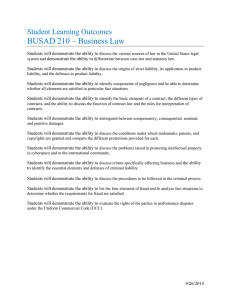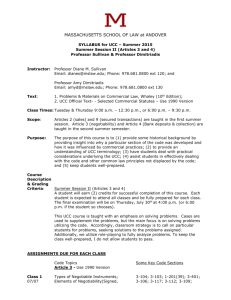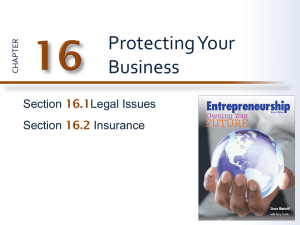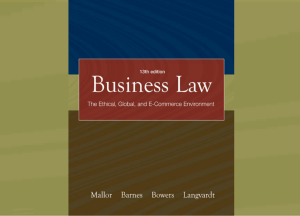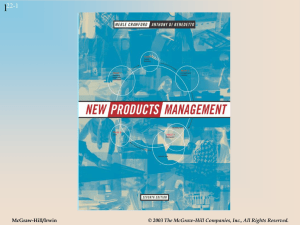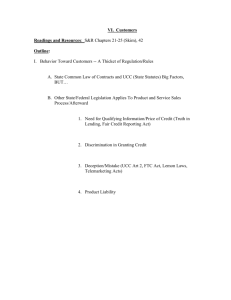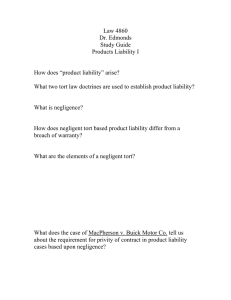Chapter 1 - McGraw Hill Higher Education - McGraw
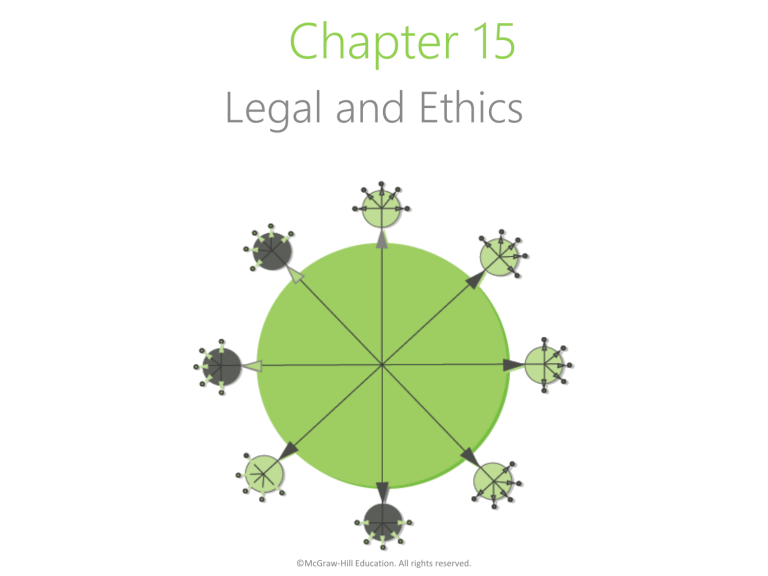
Chapter 15
Legal and Ethics
©McGraw-Hill Education. All rights reserved.
Key Questions Addressed in
Chapter 15
• How can we assure that the legal record reflects the commercial agreement?
• How can we confirm the legal record?
• How can we assure that supply personnel deal ethically and in conformance with regulatory requirements as well as organizational values?
Law of Agency
• Gives legal status to supply personnel
• Gives the authority as an agent of the organization to attend to the business of supply in accordance with the instructions given by his or her employer
– Typically instructions are a job description
• Rationale for title: Purchasing Agent (not commonly used any more)
Uniform Laws
• A uniform body of law governing the sale of goods within a country and between countries minimizes the risks associated with the acquisition process and facilitates fair and efficient trade
– USA: Uniform Commercial Code (UCC) with adaptations at the State level
– Canada: Commercial Law Strategy
– International: UN Convention on Contracts for the
International Sale of Goods (CISG)
A Valid Contract Is Based on Four
Factors
1. Competent parties - either principals or qualified agents
2. Legal subject matter or purpose
3. An offer and an acceptance
4. Consideration (bargained-for exchange)
©McGraw-Hill Education. All rights reserved.
5
Common Law and the Purchase of Services
• The UCC does not address contracts for services
• Common law governs the purchase of services
– contracts solely for services
– contracts wherein services and goods are bundled and the service portion equals more than 50 percent of the value of the contract
• Common law develops over time as courts make decisions on a case-by-case basis, developing what is known as “case law”
Intellectual Property (IP)
• Refers to creations of the mind: inventions, literary and artistic works; designs; and symbols, names and images used in commerce
(World Intellectual
Property Organization—www.wipo.int)
• Protected in law through
– Patents
– Copyright
– Industrial designs
– Trademarks
Product Liability
• Refers to liability of any or all parties along the manufacturing supply chain for damage caused by that product
• Includes
– the manufacturer of component parts
– an assembling manufacturer
– the wholesaler
– the retail store owner
• Liability suits filed over inherent defects in products that harmed consumers
Alternative Dispute Resolution
• Any means of settling disputes outside of the courtroom, including
– Arbitration
– Mediation
– Internal escalation
• Provide an opportunity to reach negotiated settlements and maintain working professional relationships

